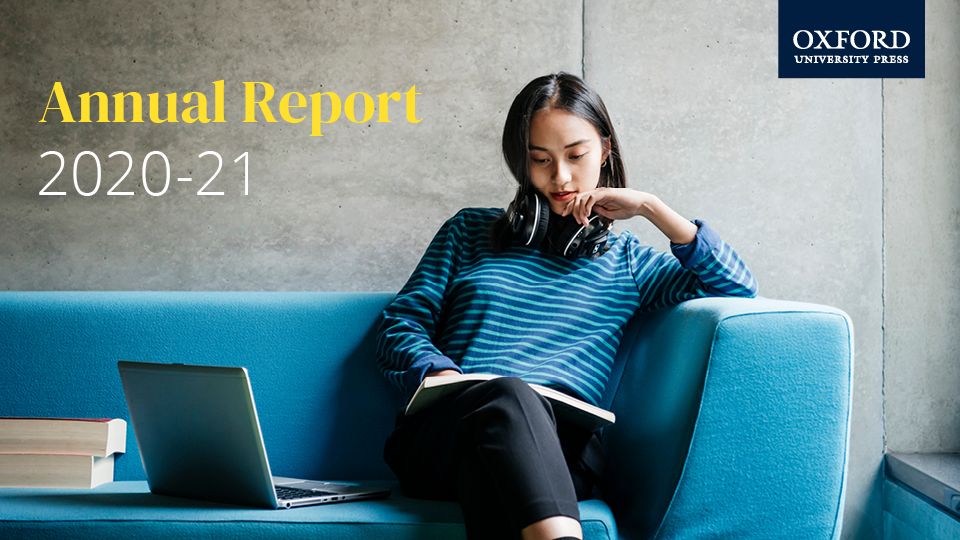Oxford University Press sees strong shift to digital in a year of disruption

Oxford University Press (@OxUniPress) — the world’s largest university press — has released its annual report 2020-21 showing that, despite the challenges of the pandemic, it delivered a solid financial performance and responded to meet the rapidly shifting needs of learners and researchers globally.
OUP recorded a Group turnover of £754.5 million (10.7 per cent decrease on 2019-20), with a surplus of £70.5 million (down 35 per cent on the prior year). The Academic Division achieved turnover growth as the demand for high-quality research content increased, particularly in digital formats. The Education and English Language Teaching (ELT) Divisions both saw turnover declines due to lower levels of digitization in their markets and a larger exposure to less resilient emerging economies, but there were some outstanding performances in some markets, including the UK and China.
The Academic Division added more than 2,000 works to Oxford Scholarship Online, while open access publishing continued to flourish, with a 32 per cent increase in articles published in 2020.
The ELT Division created over 1,000 new digital course components, reflecting the dramatic switch to remote learning during the pandemic, and it was able to bring together 53,000 English language teachers online as part of its largest annual event, ELTOC.
In the Education Division, digital services for schools became invaluable to parents, with nearly 10 million users visiting Owl Home over the course of the year. It also continued its work to address the Word Gap, highlighting the challenges for children in making the transition between primary and secondary learning, and the impact of remote learning.
In response to the disruption from the pandemic, the Press made many of its resources available for free. For example, NHS employees were given access to over 1,000 books in Oxford Medicine Online, OUP released a children’s eBook—Everybody Worries—to help children navigate through the pandemic, and thousands of eBooks were made available to children and their parents to support reading while schools were closed.
As well as sharing insights on the Word Gap, the Press made many important contributions to thinking in education and research during the year. These included Learner Agency: Maximizing Learner Potential, a paper focusing on how giving students a level of autonomy and freedom in their studies can be conducive to learning, and Researchers’ Perspectives on the purpose and value of the monograph, a report on the use of monographs in a digital environment, with a focus on keeping monographs relevant for the digital age.
Commenting on the year, Nigel Portwood, OUP CEO, said:
“COVID-19 had a significant impact on the Press’s global business throughout 2020/21 but our colleagues responded tremendously to meet both the challenges and opportunities that they faced. I would highlight the extraordinary increase in the use of our digital services, and I am delighted that we were able to continue to support learners, teachers, and researchers in ways that suited them and at a time when supporting education and research was so critically important.”
The report also includes details of OUP’s charitable and mission-based activities, including OUP’s strategic partnership with Book Aid, where the funds provided directly enabled students to continue to learn at Kahuma Refugee Camp in Kenya during lockdown, as well as donating more than 80,000 books through the organization to disadvantaged people across the world.












Responses